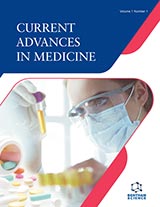Abstract
The growth of various types of cancers including lung, colon, mammary, and prostate in animal models has been slowed by supplementing the diet of the tumor-bearing mice or rats with oils containing omega-3 (n-3) fatty acids or with purified n-3 fatty acids. The efficacy of cancer chemotherapy drugs such as doxorubicin, epirubicin, CPT-11, 5-fluorouracil, and tamoxifen and of radiation therapy has been improved when the diet included n-3 fatty acids. A number of potential mechanisms have been identified for the activity of n-3 fatty acids against cancer including modulation of: eicosanoid production and inflammation, angiogenesis, proliferation, susceptibility for apoptosis, estrogen signaling and free radical activity. The response to chemotherapy was better in breast cancer patients with higher levels of n-3 fatty acids in adipose tissue (indicating past consumption of n-3 fatty acids) than in patients with lower levels of n-3 fatty acids in one study. Omega-3 fatty acids have also been used to suppress cancer-associated cachexia and improve the quality of life in human studies. Thus, supplementing the diet with n-3 fatty acids may be a nontoxic means to improve the outcome of standard cancer therapies and may slow or prevent recurrence of cancer in patients that are not candidates for standard cancer treatments.
Keywords: Arachidonic Acid, Cancer, Corn Oil, Cyclooxygenase, Docosahexaenoic Acid, Diet, Eicosanoid, Eicosapentaenoic Acid, Fatty Acid, Fish, Fish Oil, Food, Nutrition, PPAR-Gamma.






















